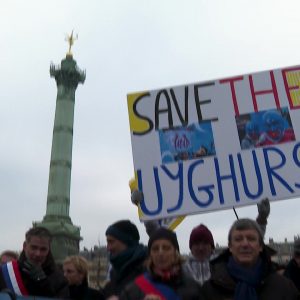UN warns of press freedom crackdown in Tunisia
Geneva, Switzerland (AFP):
The United Nations has voiced deep concern that the crackdown on freedoms in Tunisia is now targeting journalists.
UN human rights chief Volker Turk said vague legislation was being used to criminalise independent journalism and stifle criticism of the authorities. “It is troubling to see Tunisia, a country that once held so much hope, regressing and losing the human rights gains of the last decade,” he said in a statement.
“The crackdown earlier this year against judges, politicians, labour leaders, businesspeople and civil society actors has now spread to target independent journalists, who are increasingly being harassed and stopped from doing their work.
“I urge Tunisia to change course.”
A spokeswoman said Tunis has accepted in principle Turk’s request for a visit to the north African country, but a date has yet to be arranged.
Over the last three months, the Tunisian authorities have on five occasions used vaguely-worded legislation to question, arrest and convict six journalists, Turk’s OHCHR office said.
Since July 2021, the UN Human Rights Office in Tunisia has documented 21 cases of alleged human rights violations against journalists, including prosecutions before civilian and military courts.
“There are grounds to believe that these prosecutions were initiated to counter public criticism against the president of the republic or the authorities,” an OHCHR spokeswoman said.
Zied El Heni, 59, a Tunisian journalist arrested after criticising a law that criminalises insulting the head of state, was released on Thursday.
Non-governmental organisations have reported a decline in press freedom in Tunisia since President Kais Saied launched a power grab in July 2021.
In May, journalists staged a protest to denounce the Tunisian government’s repressive policies, which they say uses the judicial system to intimidate and subjugate the media as well as to stifle all opposition and criticism.
Turk urged the Tunisian authorities to respect due process and fair trial standards in all proceedings, stop trying civilians before military courts, and release all those detained for exercising their right to seek, receive and impart information.










